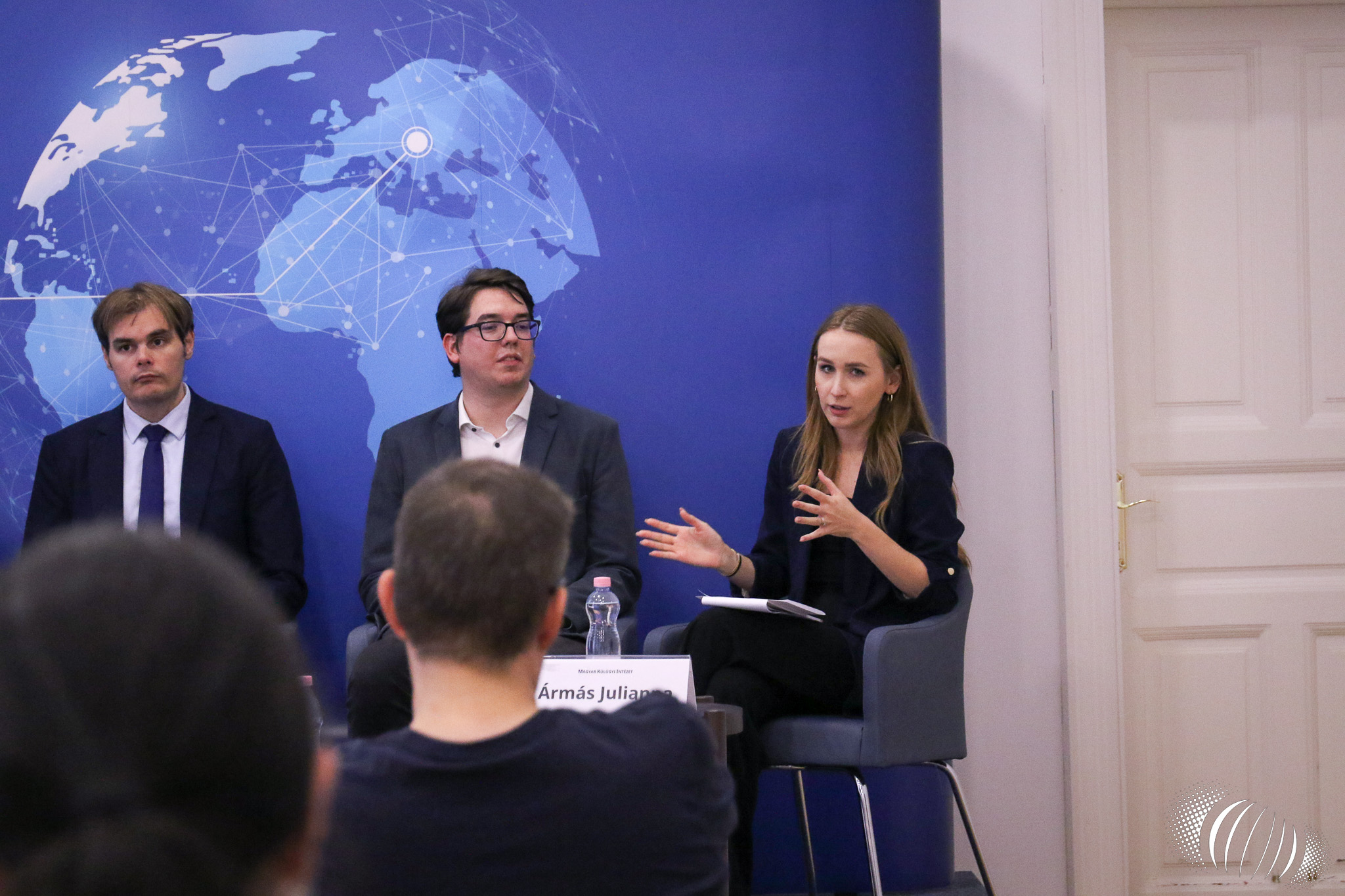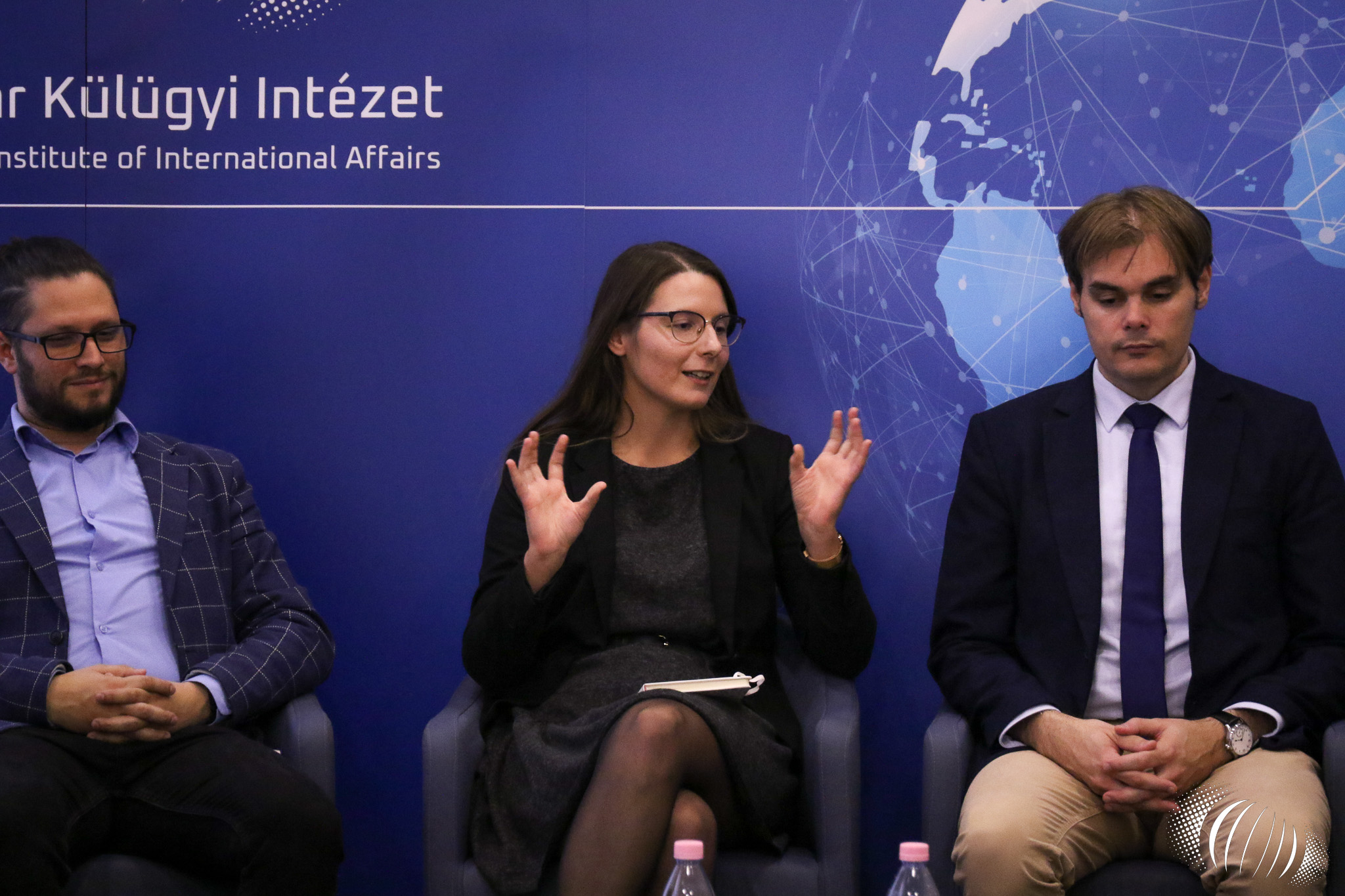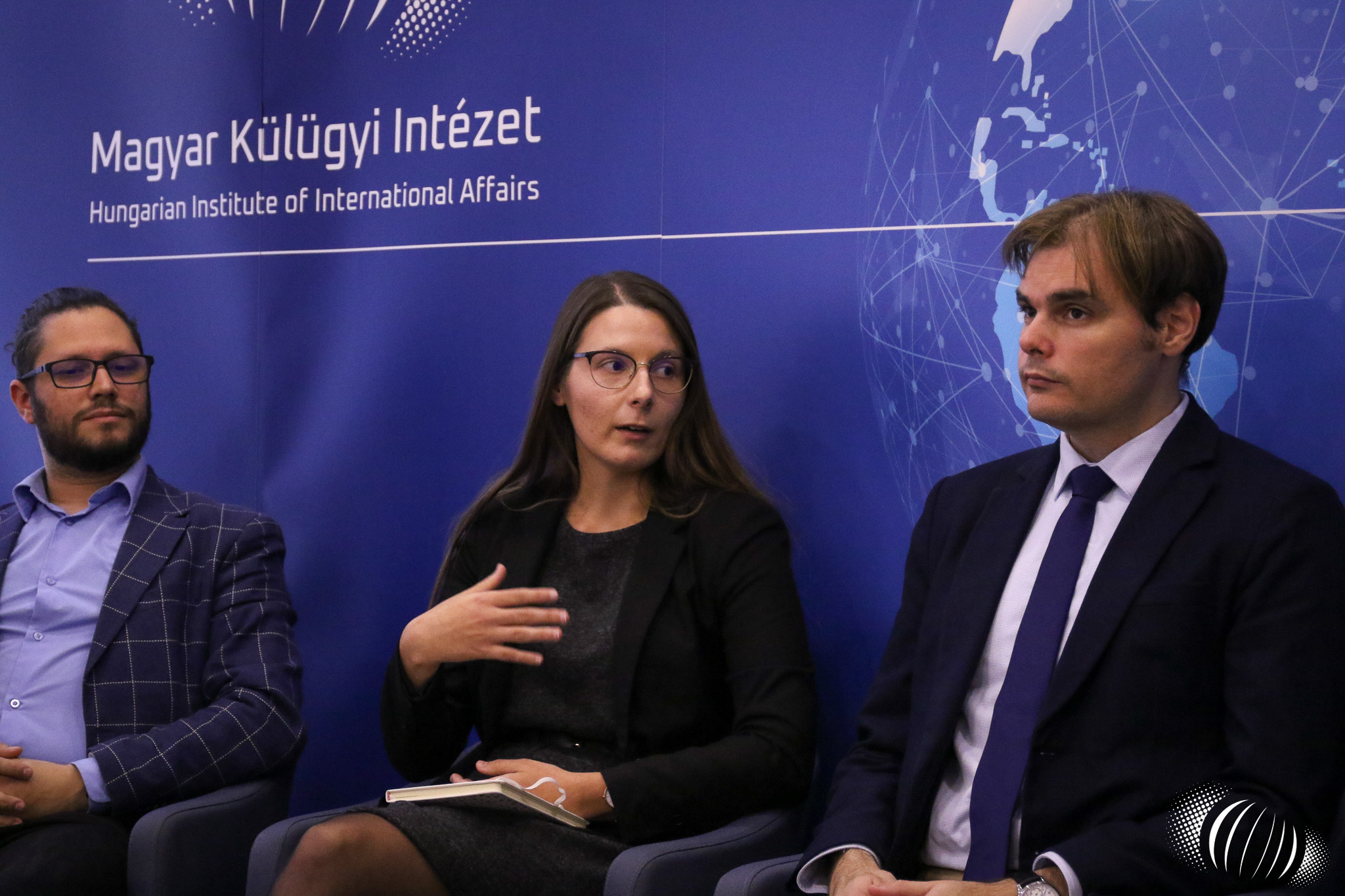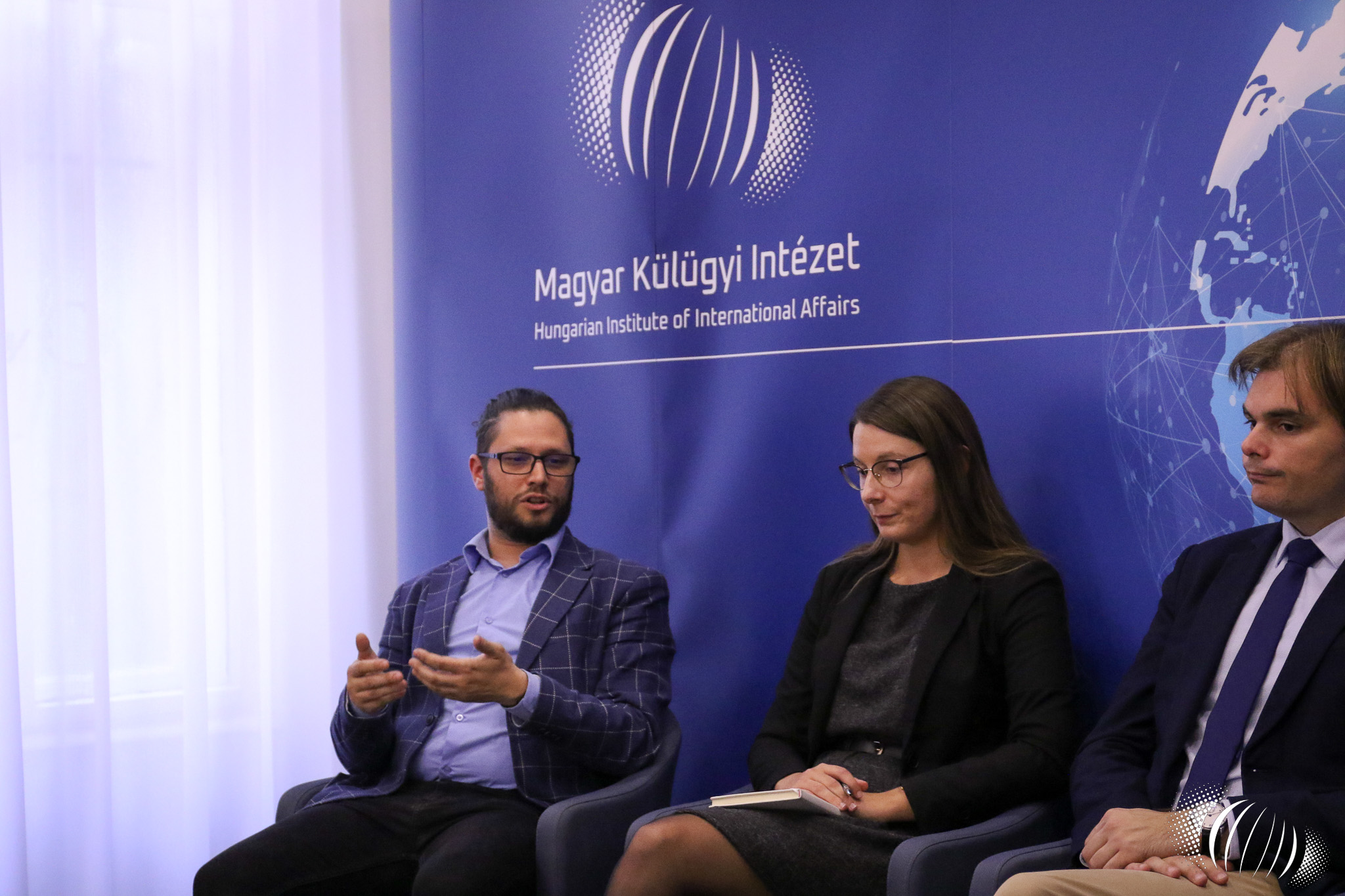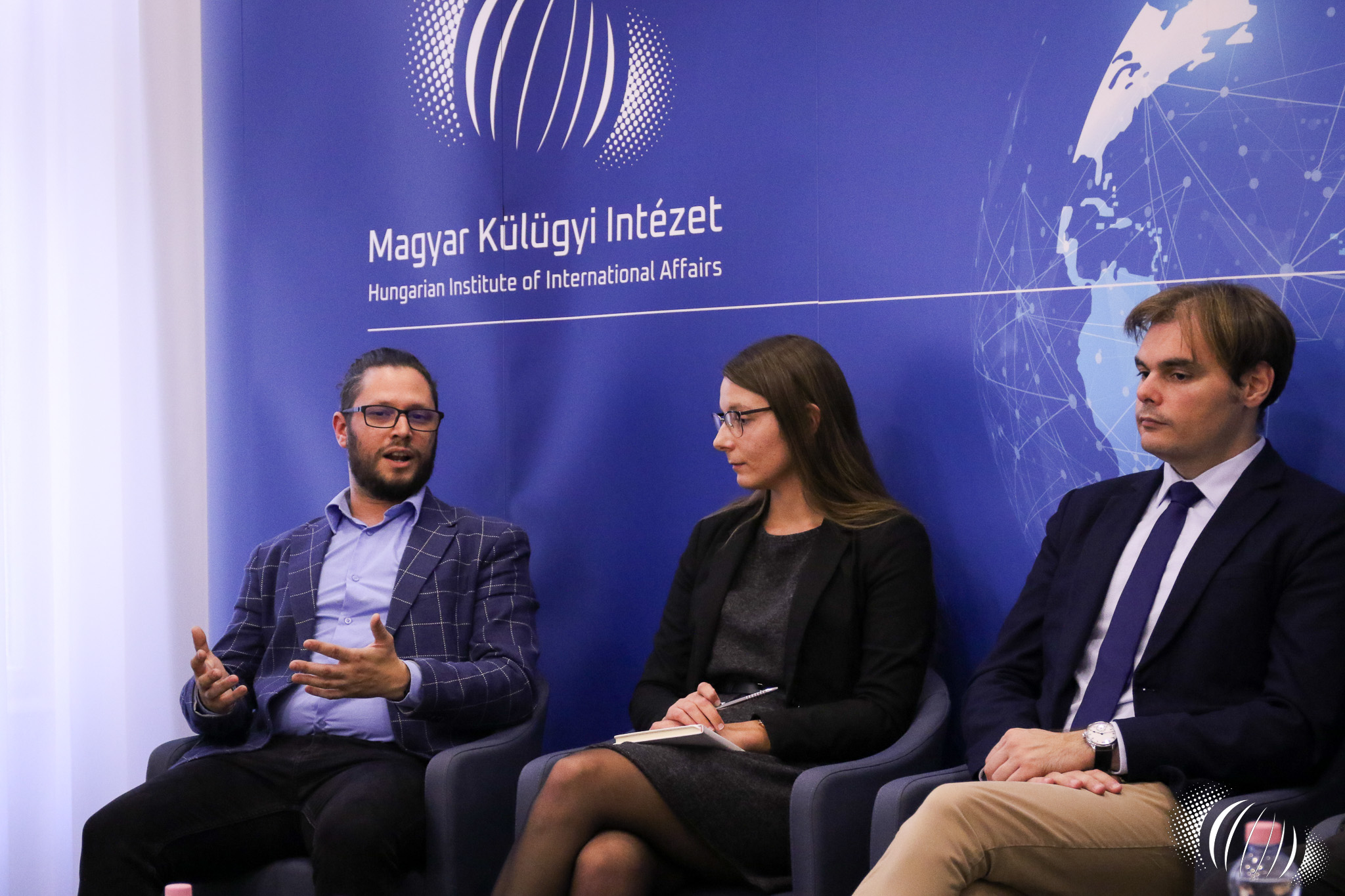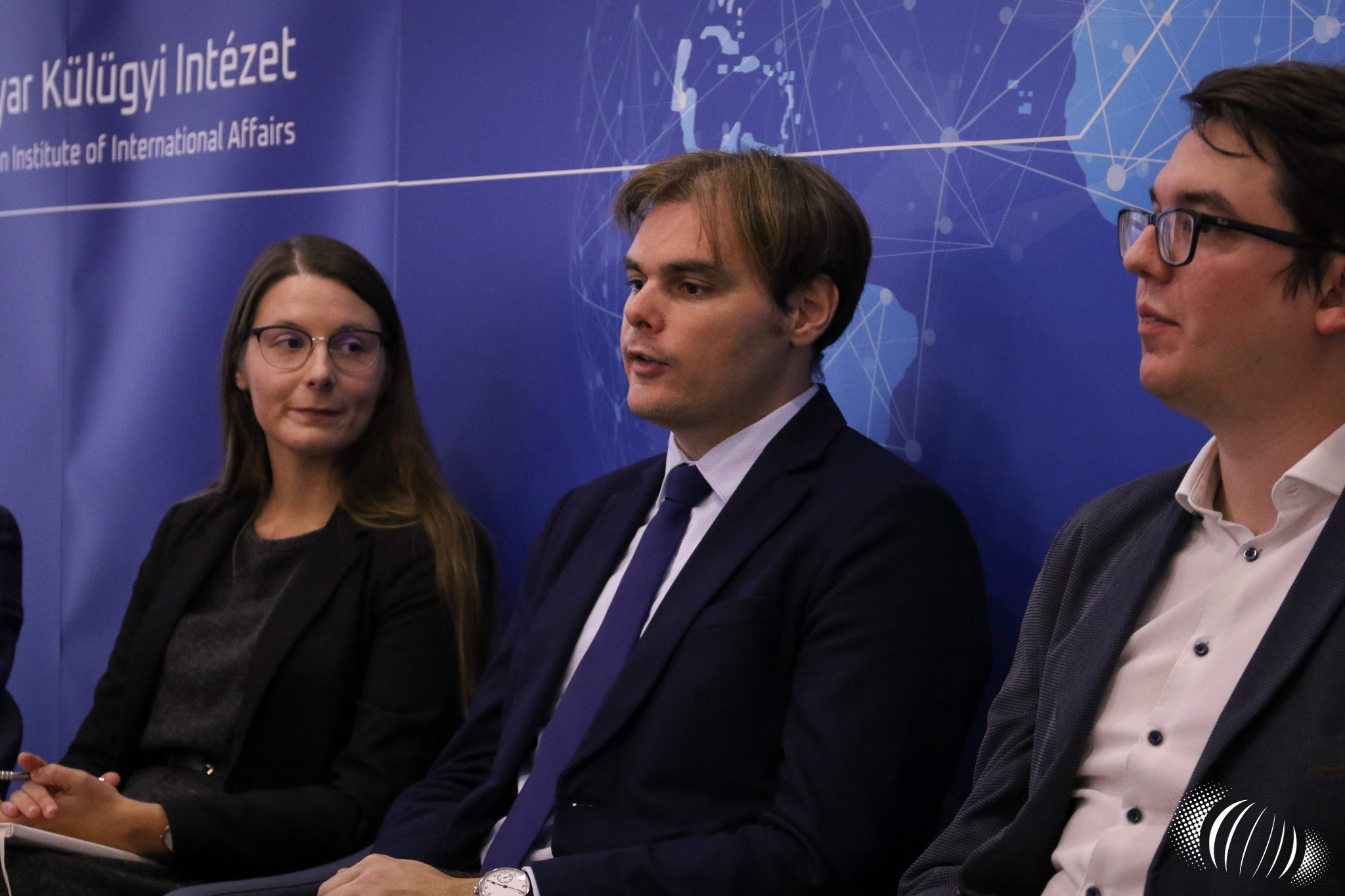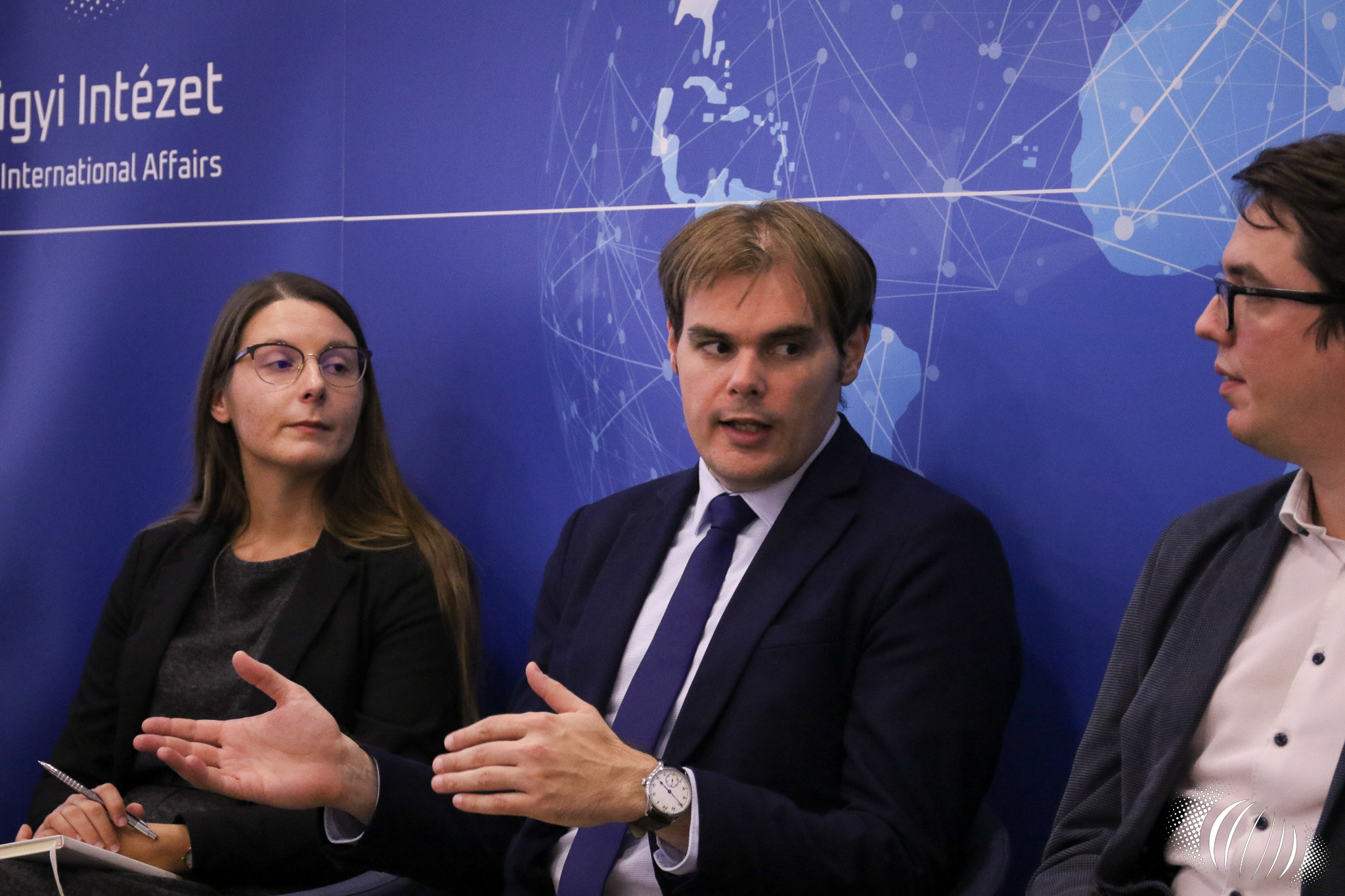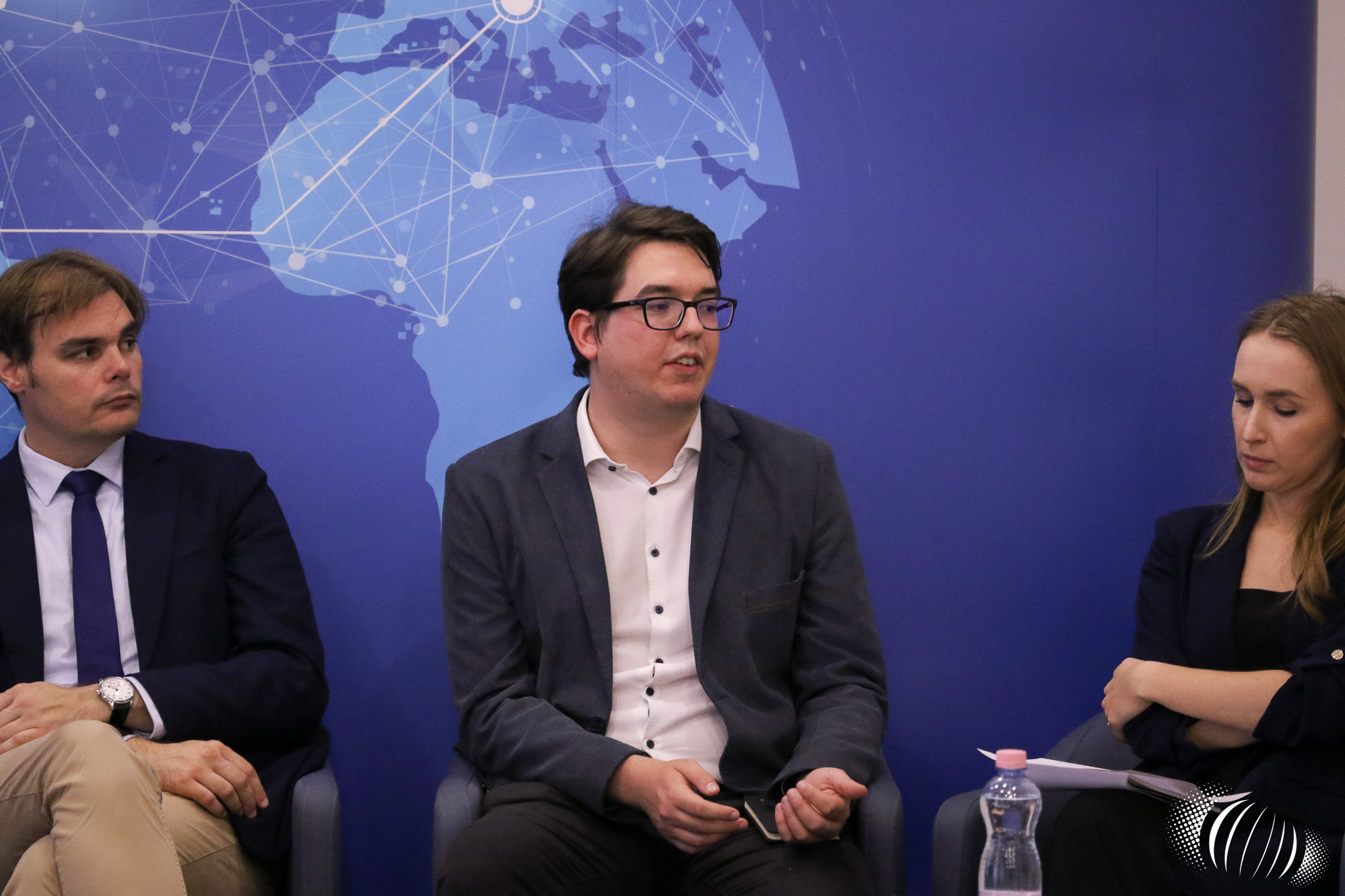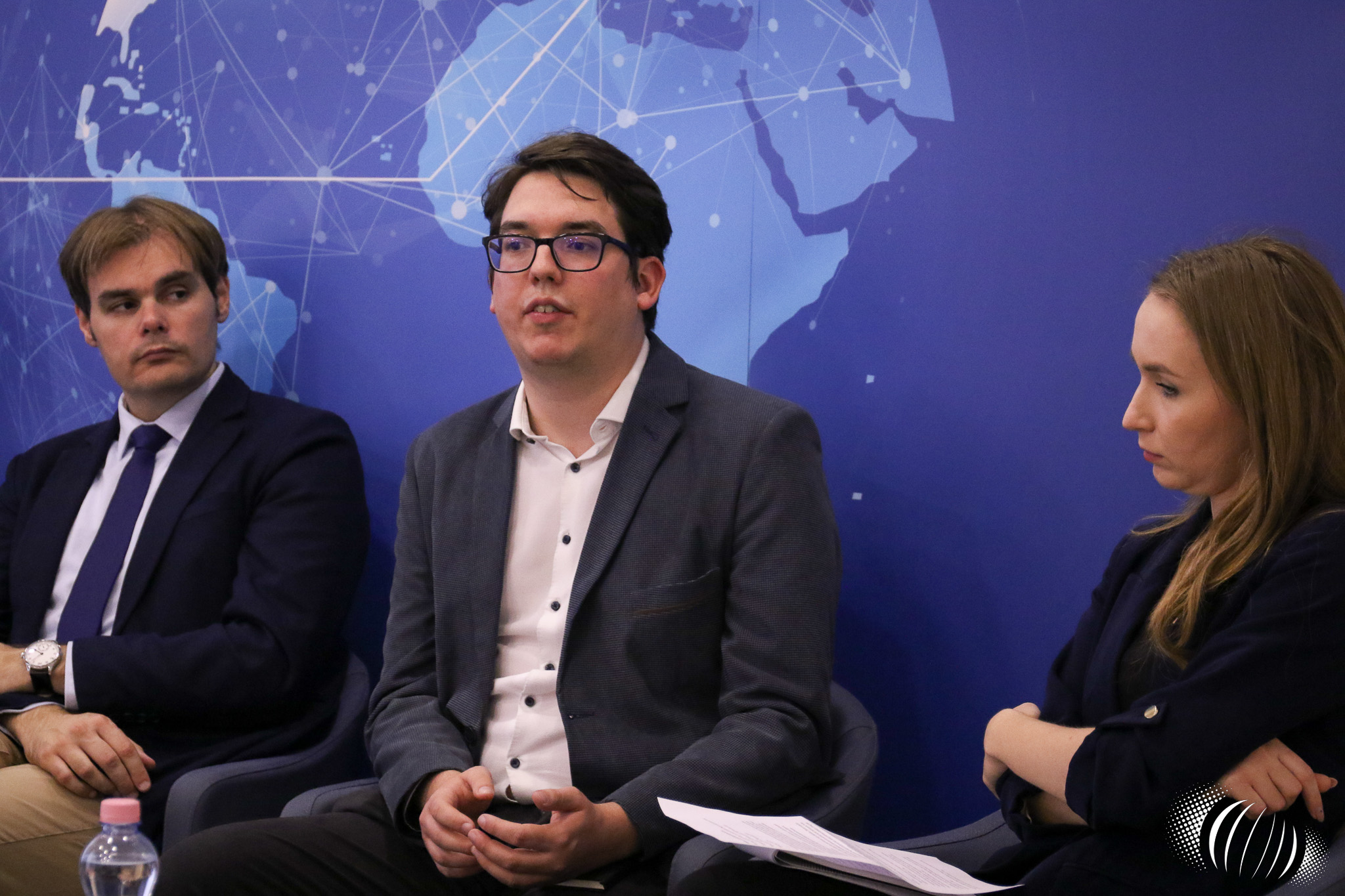The Hungarian Institute of International Affairs (HIIA) held a roundtable discussion titled “Albania, the Emerging Partner in the Western Balkans” on October 14, 2024. The panel discussion featured Dávid Biró, Project Coordinator of the Hungarian Representation Office of the Organization of Turkic States, Cintia Viola, Research Fellow of HIIA, Gábor Csizmazia, Research Associate of the John Lukacs Institute, and Árpád Párducz, Research Fellow of the Migration Research Institute. The discussion was moderated by Julianna Ármás, Research Fellow of HIIA.
The recent visit of the Albanian Prime Minister to Budapest, along with the frequency of high-level political meetings between the two countries, clearly reflects the unwavering momentum and depth of Hungarian–Albanian relations. Cintia Viola stated: „The relationship between Budapest and Tirana is consistently good. Since 2013, Albania’s foreign policy has become even more open, and Hungarian-Albanian political and economic relations have become more dynamic. Many see Albania as a stabilizing force in the Western Balkans, as the country strives for balance between East and West, while consistently following a pro-Western, Euro-Atlantic direction. Essentially, this is what makes Albania a strategic player in the Western Balkans. .”
Türkiye stands out among Albania’s Eastern partners. Concerning the Tirana–Ankara axis, Dávid Biró highlighted: „After the Arab Spring, various tools for economic pressure emerged in Turkish foreign policy as well. The region presents a serious economic opportunity for Türkiye. Around 600 Turkish companies operate in Albania, providing employment for 15,000 Albanians. Türkiye has made significant investments in Albania, particularly in cultural and educational areas: it has created universities, public institutions, and educational facilities to build educational processes that explicitly follow the Turkish model in the country .”
On the American position regarding the Russian presence in the region, Gábor Csizmazia expressed: „Hardliners think that the political problems arising from energy dependence on Russia are becoming increasingly apparent in the Balkans, similar to trends observed across Europe. There is a consensus among both Republican and Democratic circles that Russian influence can be traced behind the rhetoric opposing Euro-Atlantic integration. Conversely, others claim that the social and cultural tensions in the region are not solely the fault of the Russians. Many believe that even if there are Russian disinformation operations that could be deemed successful, they do not fulfill Russian goals, and the Euro-Atlantic integration process continues steadily. Consequently, many perceive Russia as not a geopolitical challenger in the Balkans but rather a spoiler .”
Addressing the issue of migration pressure in Albania and the agreement with Italy, Árpád Párducz emphasized: „Each year, approximately 9,000 to 10,000 migrants set out towards Albania, attempting to cross the country in an average of 6 to 10 days. Regarding the Italy-Albania migration agreement, it can be said that outsourcing migration procedures has a relatively long tradition in the European Union. The United Kingdom sought to redirect arriving migrants to Rwanda, and Austria and Denmark did something similar, but none of these ideas were successful. This is why the Italian government led by Giorgia Meloni concluded that there was a need for a location where functioning bilateral relations already existed, enabling rapid agreement, and it had to be within Europe, thus leading to the choice of Albania.”

